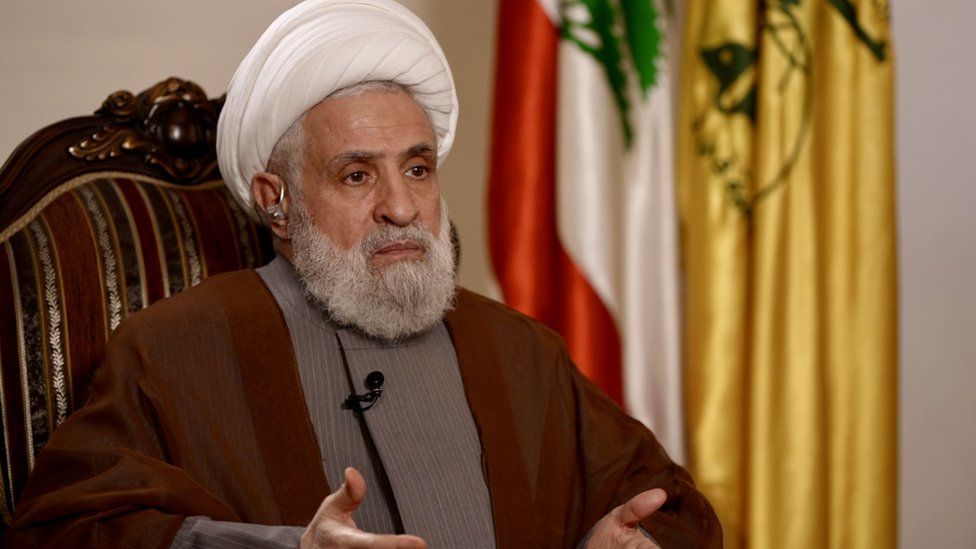-

-
-
Loading

Loading

The deputy leader of Hezbollah, Sheikh Naim Qassem, has warned that Israel's killing of civilians in Gaza could lead to a wider war in the Middle East. In an interview with the BBC, Qassem stated that the region could face "very serious and very dangerous developments" that would have uncontrollable consequences. He emphasized that Israel's aggression against civilians, particularly women and children, could not continue without posing a real danger to the region. Qassem also indicated that any escalation of the situation would be a direct result of Israel's actions. Hezbollah, the largest political and military force in Lebanon, has been amplifying its warnings but has been cautious in its actions. When a woman and three children were killed in southern Lebanon by an Israeli strike, Hezbollah retaliated by using Grad rockets for the first time in the conflict, resulting in the death of an Israeli civilian. However, Hezbollah's leader, Hassan Nasrallah, has not threatened all-out war against Israel at this point. The organization has primarily focused on cross-border attacks, mainly targeting military installations. Qassem attempted to portray Hezbollah as a defensive organization throughout the interview, despite its commitment to the destruction of Israel and its role in sparking a war with Israel in 2006. He claimed that Israel initiated the aggression against Gaza, but when confronted about Hamas' attacks on Israel, he defended them as a response to Israeli occupation of Palestinian lands. Qassem also alleged that Israeli forces were responsible for the deaths of Israeli civilians, disregarding evidence of Hamas militants engaged in violence. Qassem acknowledged that Iran supports and finances Hezbollah but denied that it gives the orders. However, it is widely believed that Tehran has significant influence and will play a decisive role in determining whether all-out war will occur. If Israel were to engage in a conflict with Hezbollah, it would be facing an adversary with a formidable arsenal, including an estimated 150,000 rockets and missiles. Hezbollah has an estimated 60,000 fighters, comprising special forces, regular fighters, and reserves. In 2006, Hezbollah fought Israel to a standstill, resulting in significant casualties in Lebanon, primarily among civilians, and substantial damage to Hezbollah strongholds. Lebanon has faced numerous crises since then, including the devastating explosion in Beirut port in 2020, economic collapse, and political instability. Many fear that Hezbollah's cross-border attacks could drag Lebanon into a war it cannot afford. Qassem argued that it is Israel's responsibility to stop the aggression to prevent the conflict from escalating further. There are concerns that any escalation could lead to widespread devastation, surpassing the current situation in Gaza. Israel would likely face significant disruptions, with its population forced into bomb shelters and limited civil aviation and maritime traffic. Moreover, Israel's response would also have devastating consequences for Lebanon. Currently, Hezbollah, Israel, and Iran are all exercising restraint, but the risk of miscalculation or deliberate escalation remains. This dangerous chapter in the region's history is characterized by anguish, death, and destruction.